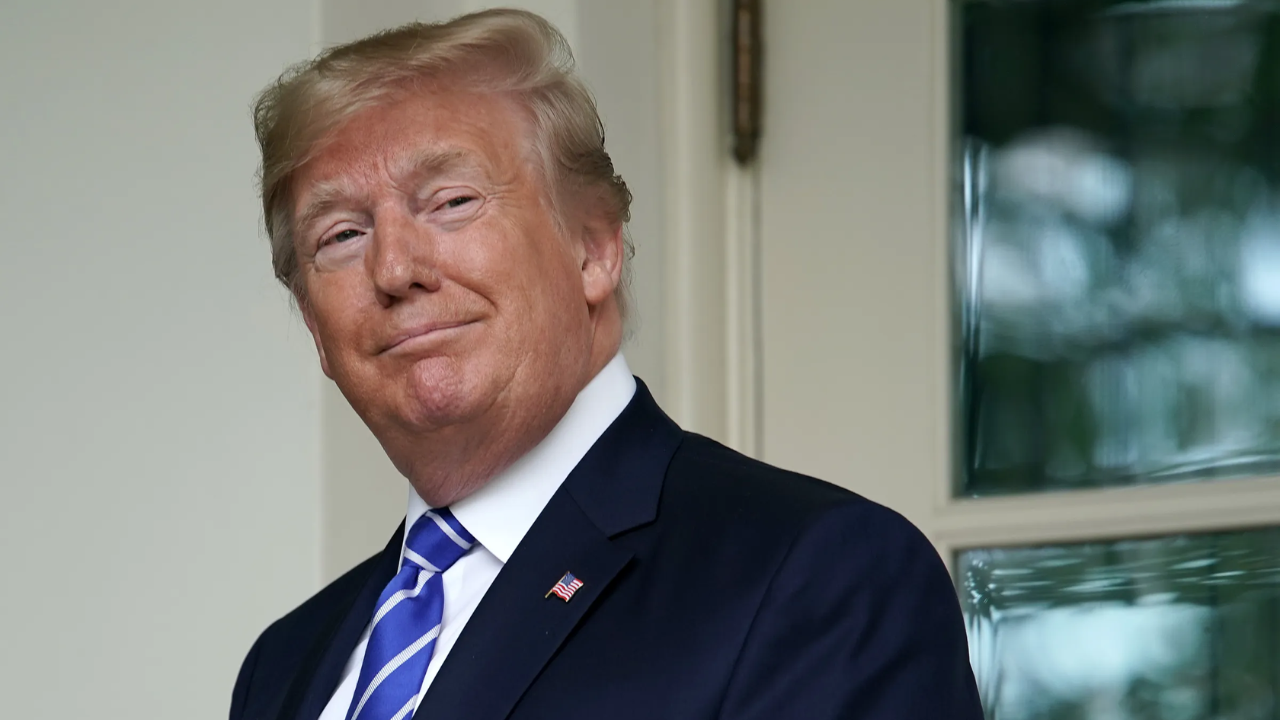The stock market is navigating through a storm of uncertainty, and despite efforts from corporate earnings, the waves of doubt are not calming.
A significant number of companies are pulling or suspending their guidance, leaving investors in the dark about what the future holds. Yet, the stock market is showing surprising resilience, with the S&P 500 logging its sixth consecutive daily gain, marking its biggest six-day jump since March 2022.
Investors are hopeful, and one of the primary reasons behind this optimism is the growing belief that President Donald Trump might scale back tariffs.
The stock market’s ability to ignore the lack of visibility can be attributed to the general understanding that companies themselves are unsure about future conditions.
Big names like General Motors, JetBlue Airways, and United Parcel Service, along with European car manufacturers like Stellantis and Mercedes, have joined the growing list of companies pulling or delaying their forecasts.
But even with the absence of clear economic guidance, the stock market has been chugging along, largely due to trade developments. Specifically, news that President Trump is considering scaling back tariffs has given investors a glimmer of hope.
Still, economic data remains unclear. Consumer confidence fell once again in April, and surveys about China’s export orders highlighted significant slumps in trade. However, this data comes from sentiment indicators, not concrete numbers, leading the market to pay less attention.
The real-world impacts, such as on domestic air travel and Las Vegas gaming revenue, are starting to show some effects, with the U.S. trade deficit rising to a record high in March. This increase is thought to be a sign that companies are importing goods to avoid tariffs, skewing first-quarter GDP data.
The market’s apathy toward economic data could shift with Friday’s jobs report, which could show an impact on hiring trends. The looming economic fallout is still uncertain, but it’s only a matter of time before its effects make a significant impact.
Trump Touts Economic Agenda. Americans Are Liking It Less.
President Donald Trump’s first 100 days of his second term have been packed with activity, but his economic agenda is facing a growing backlash. Despite his high-energy start, which included signing 142 executive orders, Trump is finding his popularity slipping, especially on economic issues.
At a rally in Michigan, Trump proudly celebrated his achievements, including his tough stance on immigration, efforts to cut federal spending, and falling prices of essential items like eggs and gasoline.
However, despite these efforts, many Americans are growing more dissatisfied with his economic policies. His tariffs, in particular, have caused his approval ratings to drop significantly.
Since the announcement of tariffs, Trump’s approval rating on trade and inflation has fallen by more than 20 points.
Although the White House continues to insist that everything is going according to plan, the president is facing mounting pressure to navigate this complex issue, especially with the auto industry expressing concerns over the tariffs.
In response to this, Trump has agreed to provide some relief to auto makers, including tariffs on auto parts for companies manufacturing vehicles in the U.S. However, the full impact of the tariffs remains to be seen.
Chinese Exports Show Impact of U.S. Trade War

The impact of the U.S.-China trade war is starting to show up in hard data, particularly in China’s export sector.
In April, China’s export orders fell to their lowest level since 2022, signaling that the trade tensions are having a tangible impact on the world’s second-largest economy. This slowdown in export orders is a clear sign of the pressures from U.S. tariffs.
Manufacturing activity also saw a dip, falling to the lowest level in over a year. These figures are seen as a reliable early indicator of economic health, and they do not bode well for those fearing that a recession could be on the horizon later this year.
European companies have also been affected, with major car manufacturers like Stellantis, Volkswagen, and Mercedes-Benz all warning that the tariffs imposed by President Trump are negatively impacting their sales and guidance for the future.
As companies brace for more significant consequences, it is becoming clear that the trade war’s effects are just beginning to be felt across the globe.
Pfizer Maintains Guidance Despite Tariff Uncertainty
Despite a strong first-quarter performance, Pfizer is remaining cautious about its future in the face of possible tariffs on pharmaceutical imports.
The drugmaker has maintained its 2025 revenue and earnings forecast, but the uncertainty surrounding tariffs has left some questions hanging.
Pfizer’s CFO, David Denton, mentioned that if tariffs do impact the company, it will assess the situation and adjust its strategy accordingly.
Currently, Pfizer expects the tariffs to cost it $150 million this year. However, CEO Albert Bourla remains optimistic, suggesting that any tariffs will likely focus on a limited number of products.
Pfizer’s continued optimism is based on its belief that any potential tariff fallout won’t be as severe as some have feared. Meanwhile, the company is focused on cost-cutting measures, including plans to reduce $1.2 billion in expenses by 2027.
Meta Launches Stand-Alone AI App to Compete with Rivals

Meta Platforms is making a significant move into the artificial intelligence market with the launch of a stand-alone AI app, set to compete with AI giants like OpenAI’s ChatGPT and Google’s Gemini.
Powered by Meta’s Llama 4 AI model, the app promises to offer users a personalized AI experience, with features like voice conversations and a “discover” feed where users can share their experiences with the app.
The Meta AI app will be available on both iOS and Android platforms and aims to position Meta as a leader in the growing AI market. Meta’s CEO, Mark Zuckerberg, is confident that the app will attract more than one billion users by the end of the year.
Investors are keenly watching Meta’s first-quarter earnings, which are expected to shed light on how much of an impact AI investments are having on the company’s performance.
With $65 billion invested in expanding its AI infrastructure this year, Meta is positioning itself to become a major player in the AI space.
Starbucks CEO Confident About Turnaround Despite Missed Expectations
Starbucks has faced some tough times, but CEO Brian Niccol remains optimistic about the company’s future. Despite missing expectations for the second quarter, Niccol is confident that Starbucks’ turnaround plan is working.
The company is facing challenges from tariffs and soft consumer spending, but Niccol believes that Starbucks can overcome these obstacles.
The company’s revenue rose by 2.3%, but same-store sales globally and in the U.S. showed declines.
However, Niccol remains optimistic, focusing on efforts to reduce wait times, improve order handling, and streamline the menu. He also mentioned plans to introduce new beverages and an aperitivo menu to revitalize the brand.
Starbucks is actively managing its potential exposure to tariffs by redirecting coffee shipments and shifting production to alternative sites. The company’s turnaround strategy is still in its early stages, but Niccol believes it is gaining momentum and will lead to positive results in the future.
Disclaimer- Our team has thoroughly fact-checked this article to ensure its accuracy and maintain its credibility. We are committed to providing honest and reliable content for our readers.






